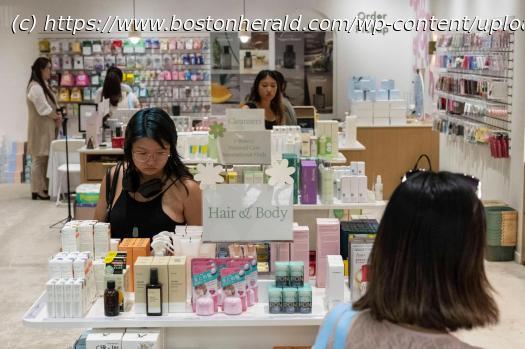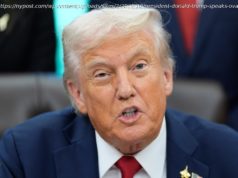Asian skin care has been a booming global business for a more than a decade, with Korean cosmetics dominating the trend. But Donald Trump’s tariffs could put a damper on the business.
When Amrita Bhasin, 24, learned that products from South Korea might be subject to a new tax when they entered the United States, she decided to stock up on the sheet masks from Korean brands like U-Need and MediHeal she uses a few times a week.
“I did a recent haul to stockpile,” she said. “I bought 50 in bulk, which should last me a few months.”
South Korea is one of the countries that hopes to secure a trade deal before the Aug. 1 date President Donald Trump set for enforcing nation-specific tariffs. A not-insignificant slice of the U.S. population has skin in the game when it comes to Seoul avoiding a 25% duty on its exports.
Asian skin care has been a booming global business for a more than a decade, with consumers in Europe, North and South America, and increasingly the Middle East, snapping up creams, serums and balms from South Korea, Japan and China.
In the United States and elsewhere, Korean cosmetics, or K-beauty for short, have dominated the trend. A craze for all-in-one “BB creams” — a combination of moisturizer, foundation and sunscreen — morphed into a fascination with 10-step rituals and ingredients like snail mucin, heartleaf and rice water.
Vehicles and electronics may be South Korea’s top exports to the U.S. by value, but the country shipped more skin care and cosmetics to the U.S. than any other last year, according to data from market research company Euromonitor. France, with storied beauty brands like L’Oreal and Chanel, was second, Euromonitor said.
Statistics compiled by the U.S. International Trade Commission, an independent federal agency, show the U.S. imported $1.7 billion worth of South Korean cosmetics in 2024, a 54% increase from a year earlier.
“Korean beauty products not only add a lot of variety and choice for Americans, they really embraced them because they were offering something different for American consumers,” Mary Lovely, a senior fellow at the Peterson Institute for International Economics, said.
Along with media offerings such as “Parasite” and “Squid Games,” and the popularity of K-pop bands like BTS, K-beauty has helped boost South Korea’s profile globally, she said.
“It’s all part and parcel really of the same thing,” Lovely said.






